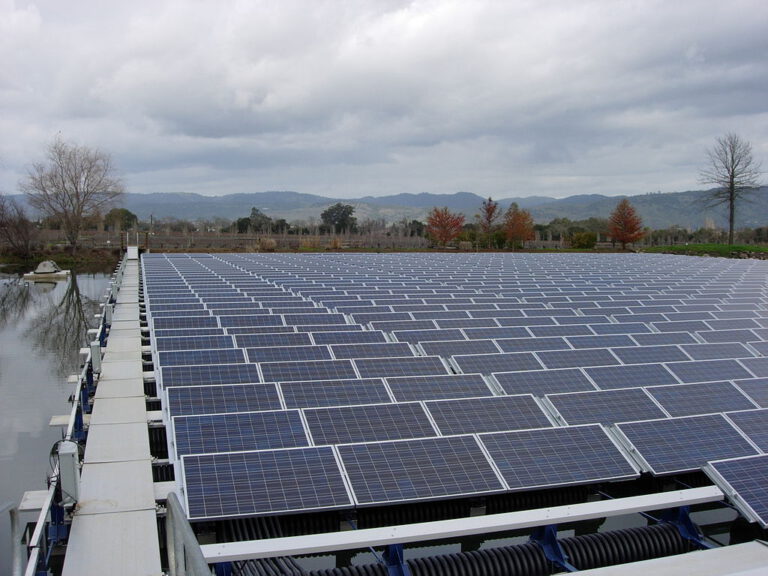How floating solar can shape our energy future
A Look at some recent research into FPV

Floating solar, also known as floatovoltaics, involves placing solar panels on a buoyant structure that rests on bodies of water such as lakes or reservoirs. These installations utilize anti-rust materials and employ buoyant polyethylene. Floating solar has gained some industry traction since the first plants were installed in the late 2000s, particularly in countries like China, Japan, and the U.K. To better understand the growing interest, in today’s blog we are going to take a look at the energy solution that is floating photovoltaics (FPV).
Permanent cooling increases efficiency
One of the unique aspects of FPV is that the water on which they float acts as a cooling mechanism to help increase the panels’ effectiveness at harvesting energy from the sun. FPV systems have also been installed in areas to help conserve irrigation resources, since the panels, which are either anchored to the shore, adjacent structures or to the bottom of a reservoir or lake, limit evaporation just above the surface of the waterbody. The flip side of this means that larger FPV plants tend to impair the biological systems below the surface or lead to water eutrophication, which is characterized by excessive plant and algal growth, if deployed in living systems like rivers, lagoons or bays.
Potential locations for offshore floatovoltaics
Such ecological restrictions have helped prompt research into options for solar collection at sea. One study carried out at the Australian National University was based on a 40-year dataset. It found that bodies of water within 5–12 degrees of latitude of the equator, such as the Indonesian archipelago and the Gulf of Guinea, meet specific criteria for the economic deployment of FPVs, since these regions have “low potential for wind generation, high population density, rapid growth in both population and energy consumption, and intact ecosystems that should not be cleared for solar farms”.
One reason the scope for developing offshore solar is so limited is that waves on most of the world’s oceans can reach over 10 meters at times. Wind speeds are also prone to exceed 20 meters per second at times. This means that the engineering defenses for floating solar panels at sea are more expensive than land-based alternatives, rendering their implementation economically non-viable when compared to wind or onshore solar. However, the same Australian study also found that the estimated annual energy potential in regions with waves below 4 meters and winds under 15 meters per second (which might include protected areas such as in the northern Adriatic Sea) is enough to service the power needs of 11 billion people.
The likely development trend
The higher costs of floating solar is also linked to the specialized equipment and installation knowledge required. And since several studies have demonstrated the negative effect that panel shading can have on coral reefs and seagrass, pit lakes from open-cut mining or former gravel pits are being increasingly used for FPV deployment. Germany, for example, recently connected a FPV plant on a converted gravel pit near Renchen in Baden. In the future, similarly repurposed water bodies that are not in competition with land for agriculture or other areas used for recreation are likely to be the ‘waterbed’ for floating solar’s global development.
If you are interested in working in this sector, please follow us on Linkedin and send a short note indicating you desire to find employment as a floating solar specialist.
